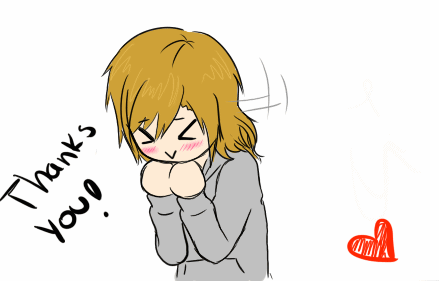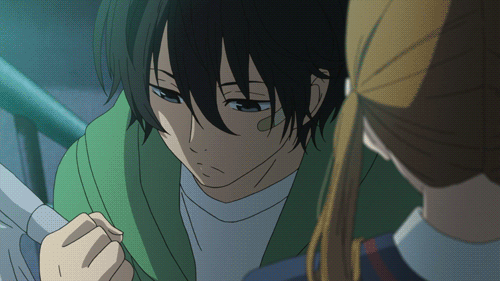
How do you say love in Japanese anime?
The most literal way to say 'I love you' in Japanese is ai shiteru (愛してる / あいしてる ), or ai shiteru yo for emphasis. This is the phrase you might know from anime or textbooks. The kanji character ai (愛) means love.
How do you say my love in anime?
Readers of manga and lovers of anime will tell you that “I love you” in Japanese is most often expressed by the colloquial “suki desu / da”, “好きです/だ”.
What daisuki means?
I really like/love youIf you're in a committed relationship, you can bump it up a notch to 大好きだよ (daisuki da yo), which is “I really like/love you.” The word daisuki in Japanese combines the kanji for “big” (大) and “like” 好き (like) to mean you have strong affection or interest in something.
What daisuki desu means?
at last, 好きです / 'suki desu' means to love, or 好きだ / 'suki da' or 好き / 'suki' in the familiar form. You can add 大 / 'dai' before 'suki' to really mean it, which gives us 大好きです / 'daisuki desu'.
What does Tanaka San mean?
In Japan, when talking about other people, one uses honorific titles after their name. The most common title is san (さん). It means all of "Mr", "Mrs", "Miss", and "Ms." Mr Tanaka is referred to as Tanaka-san, as is Mrs Tanaka, and their unmarried daughter.
Does Suki mean like or love?
Ironically, it doesn't always mean love, because suki can also mean “like.” For example, if you like ramen, you'd say “Ramen ga suki desu,” and no one would think you're actually in love with ramen in a romantic sense. You can also use it to talk about people you like, such as your favorite actor or musician.
What does Suki Sumi daisuki mean?
戸川純 (Jun Togawa) - 好き好き大好 (Suki Suki Daisuki) (English Translation) Lyrics. [Verse 1] Escalating feelings that far exceed common sense. A rose-coloured love that popped up like a sudden mutation. A love so pure you could call it violent.
What is Watashi wa daisuki?
It means "Do you love me/ like me a lot?"
What does skida mean in anime?
i like/loveskida/daisuke- i like/love. senpai-used for people who in a higher class.
What is daisuki da yo in Japanese?
1. "Daisuki da yo. (大好きだよ。; I love you.)"
How do you respond to daisuki Dayo?
"anata mo daisuki desu" means "I love you too (as well as I love another person)". If you mean "I love you too (as well as you love me)", say "watashi mo (anata ga) daisuki desu".
Is daisuki Dayo romantic?
Daisuki can be used in both platonic and romantic relationships, as it conveys the feeling of romance (when taken in context) yet it can also convey feelings of great liking.
What is the Japanese word for "I love you"?
Simply because there’s different types of love, and different meanings for each. So to get started, the literal word for “I love you” in Japanese is aishiteru.
What does "kokuhaku" mean?
Kokuhaku! Ko, ku, ha, ku, koku, haku, kokuhaku. Kokuhaku literatly means confession, and is what you call the event of confessing your love to your special someone. (Pronunciation guide) Ok the confession of love in Japan is absolutely vital for any relationship to start in Japan.
What does "sakana ga suki" mean?
Sakana ga suki = I like fish. (face to face with fish) Sakana no koto ga suki = I like you fish…. Koto is a word that means “intangible thing” as in “the idea of” I like, the idea of Yuna. And "no", is another “marker word” which indicates possession, and links two nouns together.
What does the word "anime" mean in Japanese?
The Japanese created the word anime from the English word Animation and gave it the meaning “animated cartoon ”. That has not changed from its creation to now from the Japanese point of view. Hence, in Japan/Japanese the word “anime (アニメ)“ basically translates to cartoon for us.
What is an anime?
Rajan Pandey. , Read many popular manga. Answered 5 years ago. It's only written in katakana as a-ni-me (アニメ). Anime (アニメ) is a shortened form of anime-shon (アニメーション) which is from English 'animation.'.
What is the anime research club?
Anime Research Club) or anime ken’kyuu kai アニメ研究会 (lit. Anime Research Society) When you want to be catchy with all the kanji: anime kurabu アニメ倶楽部. 倶楽部 is a form of homophone to クラブ and is sometimes used when all-kanji spelling is desired, or in certain trademarks such as the BOHKEN CLUB 冒険倶楽部 tools brand.
What is the exclamation in anime?
A manga, Anime exclamation often shouted before the execution of a deadly technique in fights, and sometimes sounding like "ku-rake" in the heat of everything. Kuremasu: In short, kuremasu and its variants of kuremasen and kurenai are polite suffixes tagged to the end of Japanese sentences when asking permission.
What are some of the most common Japanese words?
Here are some of the common Japanese words and phrases used in Anime. I could only think of these few, and there sure are a lot more of them. I mentioned only the most common and important ones: 1 Aikawarazu: As usual. The same as always. 2 Arienai: Unbelievable. Impossible. In the Kansai dialect, this becomes ariehen. 3 Arigatou: Thank You 4 Atarimae: Of course. Naturally. 5 Baka: Stupid. Probably the most well-known rude Japanese swear word. The most well-known rude Anime word too. 6 Betsu Ni: It's nothing. Nah. Nothing in particular. 7 Bikkuri Suru: To be shocked. Suru is often omitted. 8 Chigau: Wrong. 9 Chotto Ii:
Where does the word "anime" come from?
The word is derived from the English word “animation” which, like most other loan words, became transliterated into katakana, asアニメーション (animeeshon). And as is common when abbreviating something in Japanese, all but the first three morae, アニメ (anime), was discarded. 3.7K views. ·.
Who is Pazu in the movie Laputa?
Upon her escape, she meets Pazu, a boy who dreams of reaching the fabled flying castle, La puta. The two decide to embark on a journey together to discover this castle in the sky. However, they soon find the government agents back on their trail, as they too are trying to reach Laputa for their own greedy purposes.

Popular Posts:
- 1. what i learned from anime
- 2. are you readt for the end of the world anime
- 3. who is beast in belle anime
- 4. when will aot end anime
- 5. what is the longest ongoing anime
- 6. where are you now anime
- 7. don't watch an anime called boku video
- 8. can anime give me love i'm so lonely
- 9. is anime bad for your brain
- 10. what are the top anime shows